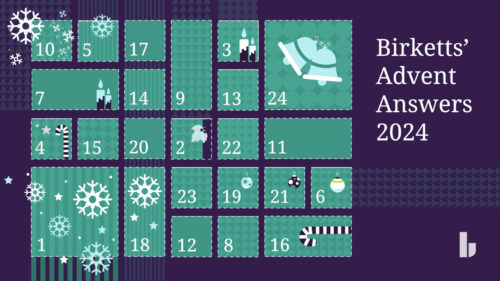Pre-marital agreements and pre-civil partnership agreements (also known as prenuptial agreements or “pre-nups”) are becoming more popular.
Pre-marital agreements and pre-civil partnership agreements (also known as prenuptial agreements or “pre-nups”) are becoming more popular and are no longer just for celebrities and wealthy couples. Recently postnuptial agreements have become more common. Both types of agreement seek to set out the financial arrangements which will apply if a marriage breaks down, to avoid the bitterness and acrimony that can affect negotiations. Judges are increasingly willing to take them into account so long as:
- Each person had independent legal advice, preferably paid for from their own resources; and
- Each person provided the other with evidence of the value of their assets, liabilities, pensions and income; and
- The agreement is fair – which does not mean that it has to be consistent with the current law; and neither party has brought pressure to bear on the other to sign; and
- The terms were agreed at least 21 days before the marriage ceremony (for prenuptial agreements).
A prenuptial agreement lawyer will be able to assist in the creation of a document that forms an agreement you are comfortable with. Contact a member of the family team if you have further questions on making a prenuptial agreement or a postnuptial agreement.
Co-Parenting Agreements
A co-parenting agreement can be relevant to couples whether married, separated or divorced. These are different from prenuptial agreements which regulate financial matters. A co-parenting agreement can explain in more detail how the parenting can work. This can be useful for teenage children who can challenge their parents, perhaps playing one off another, as well as for step parents who also need to involve absent birth parents. Questions such as “who will attend parents evenings”, Christmas arrangements and where children should spend the holidays can be covered.
Cohabitation Agreements or Living Together
If you are unmarried and have decided to set up a home with your partner it is important to be clear at the outset about the terms upon which you hold your property and how you will deal with matters if the relationship ends.
If you have decided to set up home with your partner and you are buying a property it is sensible to consider in whose name the house should be; by whom and how the mortgage or rent will be paid; what will happen in the event of a separation; how any net equity in the property will be divided; and if there is negative equity, how this will be covered and, if the property is rented, who will transfer the lease to whom.
A beneficial joint tenancy means that when the first partner dies, the surviving partner automatically inherits the deceased’s share of the property. However, if a couple hold the property as tenants in common, upon the death of the first partner their share does not automatically pass to the survivor.
The property is more likely to be sold because a couple has decided to split up. This is where a cohabitation agreement drawn up at the outset is really useful. Not only can the agreement detail how a couple’s finances will be managed whilst they are together but also how they are to be divided should they separate.
Our team of family lawyers are experts in marriage, divorce and pre-nuptial law and can assist you with any of the questions you may have on each topic.
Contact a member of our family law team if you would like any more information about prenuptial agreements, co-parenting agreements and cohabitation agreements or to make an appointment.
Great value with premier London quality at Cambridge rates. Friendly, approachable practitioners with a problem solving attitude to family law issues.
Legal 500 [UK 2022]

















